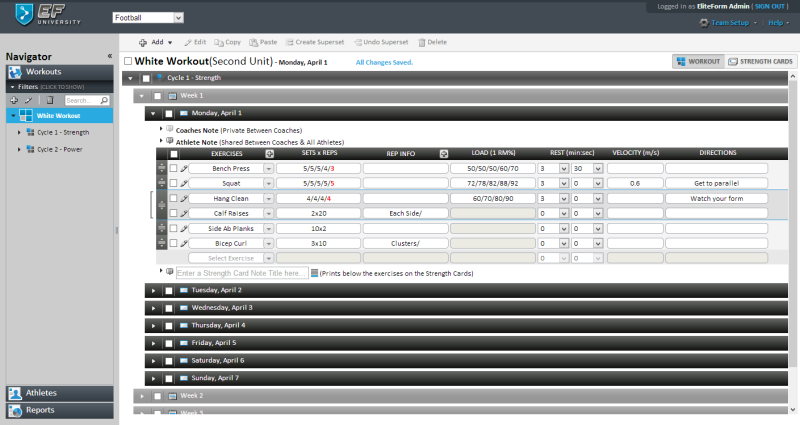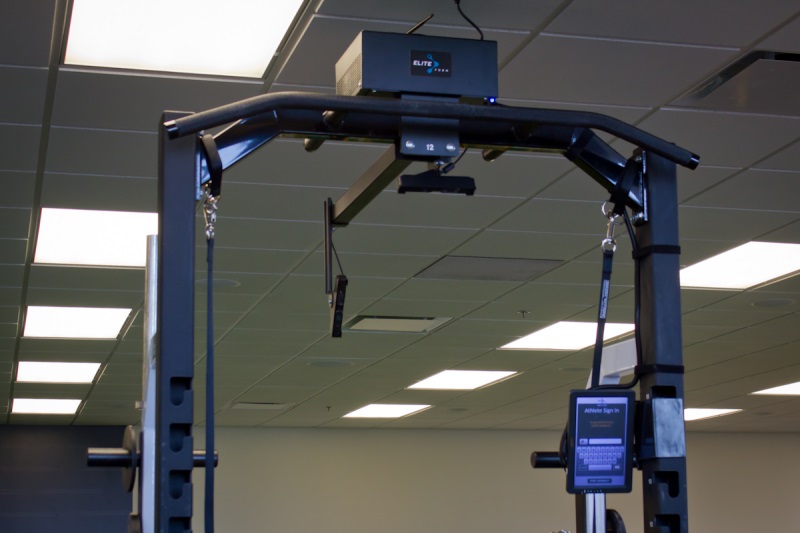500,000 Reps and Counting
In March, the EliteForm team celebrated a major milestone: 500,000 reps tracked by our PowerTracker system.
If you’re not familiar with EliteForm, it’s a company we launched in 2012 that provides coaches a way to create workout designs in a web-based application (StrengthPlanner) and publish them to touchscreen based units mounted on weight racks (PowerTracker). PowerTracker uses the magic of two 3D cameras (like Microsoft’s Xbox Kinect) to track the weight bar for every rep, giving velocity and power numbers that were extremely difficult, if not impossible, to measure before. It also records videos that coaches can use to critique and improve an athlete’s form, but that’s another post…


Since we need to track the status of all PowerTracker units to ensure reliability, we tasked interns Ryan Rasmussen and Chris Niemann to build us a dashboard from which we could monitor the “health” of the units. Since the dashboard also provides us access to all kinds of fun usage stats, we thought we’d share a few interesting ones with you now that we’ve crossed such a milestone.
When we looked at single reps performed by athletes using our system, we found that:
average power ranged from 4 watts – 6,474 watts, with a mean of 1,231 watts
peak power ranged from 10 watts – 11,359 watts, with a mean of 2,038 watts
average velocity ranged from 0.07 meters/second – 2.8 meters/second, with a mean of 0.6 meters/second
peak velocity ranged from 0.11 meters/second – 5.0 meters/second, with a mean of 0.95 meters/second
By the time we tracked 500,000 reps, we had 742 unique athletes performing 393 exercise variations. We even had one athlete who performed 4,009 reps!
We calculated the power output of all these workouts to be 54 kWh (195464638Ws = 195465kWs = 3257kWmin), which is enough to power an average American house for 1.7 days. In terms of dollars, that is $4.08 worth of electricity here in Nebraska (@ 7.52¢ per kWh) or $13.56 in Hawaii (@ 25.12¢ per kWh).
We put a lot of effort making a system that can track in many environments with a variety of different athletes and techniques. The system we’ve developed is reliable and accurate in very active environments. Because of this we’re very proud of this milestone.



